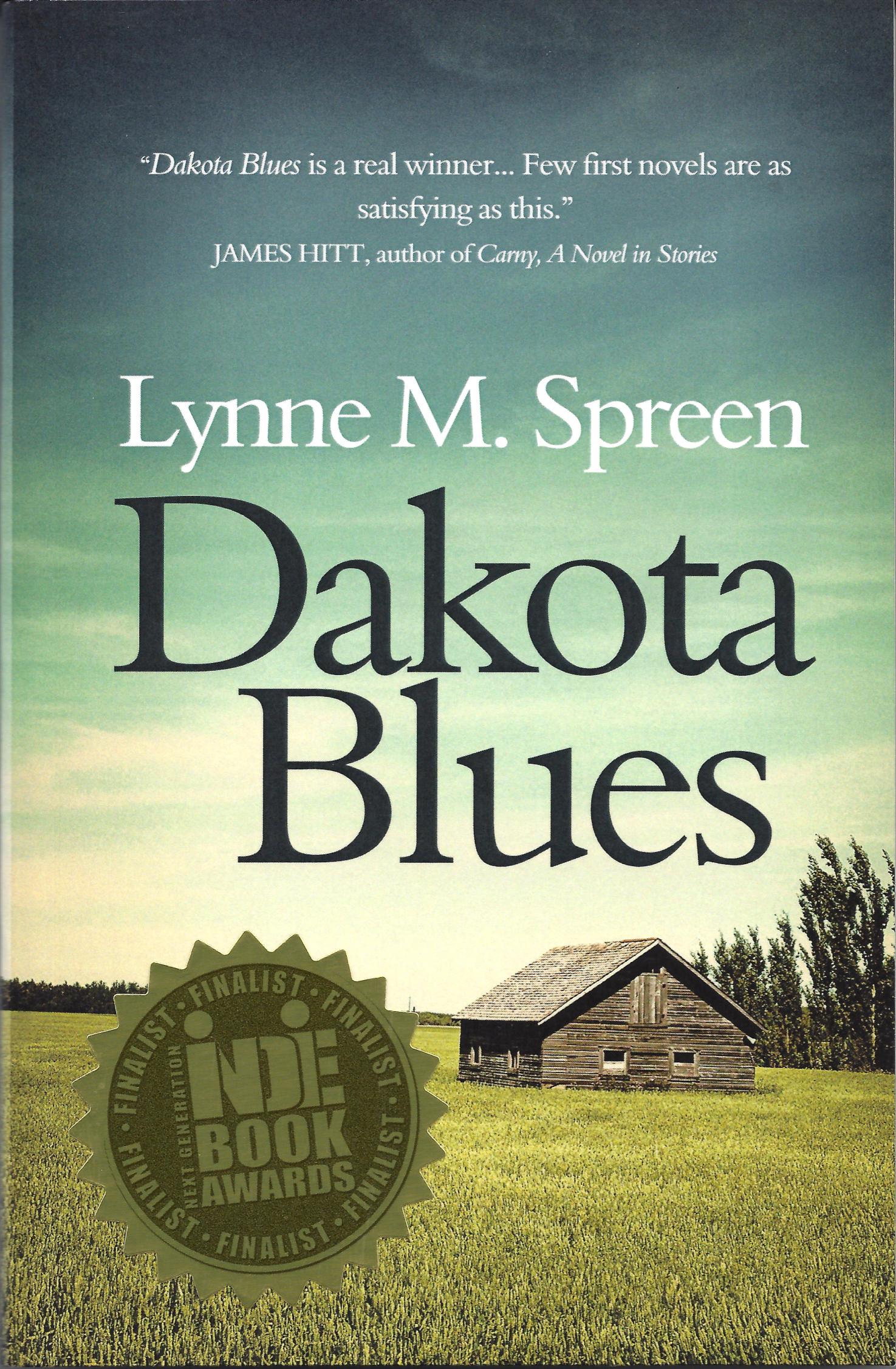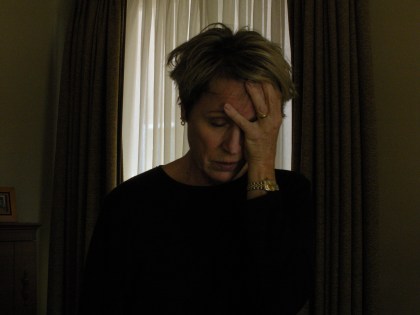There it was again, in an interview in Parade magazine last Sunday, with Emma Thompson and Dotson Rader:
Rader: When you were at Cambridge, you became a feminist. I don’t mean that in a negative sense.
Thompson: No, it’s not a negative word.
Well, Emma, it wasn’t originally, but now I think it is. Younger women start their sentences with, “I’m not a feminist, but...” In Lean In, Sheryl Sandberg writes,
We accepted the negative caricature of a bra-burning, humorless, man-hating feminist. She was not someone we wanted to emulate…In our defense, my friends and I truly, if naïvely, believed that the world did not need feminists anymore. We mistakenly thought that there was nothing left to fight for.
Feminism has fallen out of favor. This is partly because it has been taken over by extremists. Lately, for example, it’s considered bad feminist form to diet, lest one be perceived as selling one’s soul in compliance with cultural norms of beauty. (Dang, right after I started back on Weight Watchers!) According to an article in Elle Magazine this month, Marisa Meltzer says,
There’s a thread of old-school feminist thought that says taking pleasure in being admired for our looks is participating in our own oppression…
Daughter, please. There’s also a thread of feminist thought that says make up your own mind about what you want to take pleasure in. Just don’t let anybody limit you based on gender.
The feminist movement (a) made some mistakes and (b) got co-opted by the forces of capitalism. Unfortunately, the message of feminism was perverted from “you can be whatever you want to be” to “you must be a spectacular over-achiever.” Women are expected to be perfect mothers and partners while running corporations, and they’re freaking out and opting out.
Although we’ve opened up classrooms and board rooms, allowing women to go where only men have gone before, we’ve ignored the fact that women have wombs, ovaries and breasts, plus the talent for perpetuating the human race. This requires a little more effort and time, which they’re not getting. They’re expected to pop out babies on their lunch hours and get right back to work, pumping breast milk in the ladies’ room while wolfing a sandwich at their desks.
It’s horrendous. A nightmare. I’d be pissed, too. But instead of competing with each other for the title of Superwoman, we should recognize that women face similar difficulties and challenges in work and life. That used to be the basis for feminism. Our common difficulties impelled us to band together and fix things. We rejoiced in our collective power to shape a society that for too long had taken our contributions for granted while barring us from real power.
Back in the day, we wanted to be liberated from stereotypes that said we couldn’t be astronauts or fire fighters, and from rules that we should act or look a certain way to keep society from feeling threatened. Yes, some of us took it too far. Some of us became narcissistic assholes. If you were raised by one, I apologize.
But here’s one of the coolest, most empowering things I, as an old broad, can share with you. If you don’t like something? Change it, alone or collectively. Remember, there is more power in numbers, so you might get a couple hundred thousand sisters to join you in your mission. Call it whatever you want, but do something. Make yourself proud.
You can wallow in the nastiness of what is, or stand up, hose off the mud, and create a better world for yourself and other humans. If not for yourself, for your daughters and sons. At least, please try.
















mimijk
/ December 20, 2013I am SO with you on this…great post Lynne..
jzrart
/ December 20, 2013Powerful post, Lynne!
Let's CUT the Crap!
/ December 20, 2013Tell it like it is. Well said. 🙂
Cheryl @ Artzzle
/ December 20, 2013Exactly … good job!
Lynne Spreen
/ December 20, 2013Thanks, Mimi, Cheryl, Tess, and Jzrart. Brings back memories, doesn’t it?
Sue Shoemaker
/ December 20, 2013It wasn’t until I was doing research for an Underground Railroad tour, that I “realized” that women in the US have only had the right to vote since 1920. I was 61 at the time and had voted for forty years…not actually understanding that women had only been exercising that right for 50 years prior to my first visit to the polls.
There is a tendency to “take for granted” the accomplishments and “hard-fought-for-gains” younger generations “inherit” as a birth right. The word “suffragist” disappeared from common usage long ago…and perhaps that will eventally happen with the term “feminist.”
Maybe the feminist movement has done what it was supposed to do…make life better for those who follow behind.
Lynne Spreen
/ December 20, 2013Sue, I think it has done that, for sure, even if there have been some missteps. But have you ever watched the movie, Iron-Jawed Angels? The trailer is here, and it looks like you can watch the whole movie on YouTube. It is a horrific reminder of what we women may have forgotten. http://www.youtube.com/watch?v=UGyB3tV9kU0
ziggityboomer
/ December 20, 2013An organizational behavior PhD I worked with told me it is part of being young to change whatever came before. Change the path, the color, the words. We all benefit from the work done before, as you say, whatever you want to call the changers, and if we want to improve stuff at our age, we can do it still. I wrote a letter this week to a 501(c)3 we use services from when I found on their website a Board and executive officers with all white men. We’ll see if I get an answer. All I can do is ask the question. Thanks, Lynne for another thoughtful and wise post! Happy holidays!
Lynne Spreen
/ December 20, 2013I’m glad you wrote the letter, Zig. Surprising that’s still happening. Well, we’ve got good stuff happening, with the new head of GM, with Janet Yellen probably going to be confirmed at the Fed, and with a woman sitting next to the President at the conference on NSA/Internet privacy this week. Things you’d never have expected to see in my lifetime. We just need to remain vigilant, as you demonstrate. Happy holidays back atcha! http://www.nytimes.com/2013/12/11/business/gm-names-first-female-chief-executive.html?_r=0 and http://www.zimbio.com/pictures/-TZjj3r0hW1/Barack+Obama+Meets+Tech+CEOs/wYTw8hPyof1/Marissa+Mayer
elizabeth2560
/ December 20, 2013I understand this post TOTALLY especially trying to be a “superwoman” and to “fix things” … and so it became MY fault when things did not fix!!
My daughters-in-law and nieces-in-law have it easier than our generation I think as the new-age male definitely takes more responsibility with the domestics and childcare than our generation. Still there is still a lot for us (the baby boomers) to recognise and being proud of the softer parts of being woman. In this new era of my life, I am enjoying bringing that to the surface again.
elizabeth2560
/ December 20, 2013PS. I am off air for three weeks so please have a Joyous Christmas and I will see you again in the new year.
Lynne Spreen
/ December 20, 2013Elizabeth, after working hard all my life, I am now enjoying the softer side, too! I provide childcare for my toddler grandkids a couple times a week, and it has allowed me to play at being a stay at home grandma.
glendanp
/ December 20, 2013I am a woman pure and simple and as such have a responsibility to continue to raise up women in every part of our lives. I am always proud to be called a feminist and NEVER say “I’m not a feminist but. . . “. I believe in the love and power of women to advance all human causes to a better way for everyone. Our society and our world have too many problems that are threatening us as a species and we have the power to make change. Living from our true feminine self with love, kindess and compassion is the way to be a power-filled, powerful, feminine, woman. Thanks for the blog!!!
Lynne Spreen
/ December 20, 2013No, thank you, Glenda. I very much appreciate your heartfelt reply.
Sarah
/ December 20, 2013Beyonce’s new album should help spur the national conversation.
Lynne Spreen
/ December 20, 2013Really? I’ll check it out. Thanks!
Anita and Richard @ No Particular Place To Go
/ December 20, 2013Terrific post. I’m proud to be called either a sister or a feminist! Anita
Walker Thornton
/ December 21, 2013Lynne,
Powerful and eloquent. It’s hard for me to find myself in the current wave so I have to be comfortable with the way I define feminism and how I ‘show up’ in my life. With 2 granddaughters I am eager to see women work together and make the necessary changes–’cause we’re not done yet! Thank you for sharing this.
chelawriter
/ December 21, 2013There seems to be a societal trend, when a good idea threatens the status quo, to apply a label to that idea and then denigrate everything bearing the label. So it has been with feminism. The original idea, which you express very succinctly as “you can be whatever you want to be” was twisted into an insistence that one not be anything traditionally perceived as feminine.
My earlier professional life was a series of challenges to limits – the first young professional to work in my state’s Game and Fish Department, the first young woman to teach college in the (all male) penitentiary. Later, I moved into a more traditionally female endeavor (health care) but still chose to lead in my own fashion – encouraging growth and learning and “moving up and out” in my staff.
Perhaps the important lesson now is neither to remember the effort of those of us who have gone before, nor to redefine the future as a different type of challenge, but rather to persistently resist being labelled. Feminist, supermom, tool of the corporations, rebel, nonconformist, conformist, liberal, conservative – every label is inherently a limiting factor. Let’s refuse to accept limits to our accomplishments – by not using labels.
Lynne Spreen
/ December 21, 2013Oh, Chela, what a brilliant, moving comment. Thank you, thank you. Norma Rae’s got nothin’ on you, Sis.
kathybjork
/ December 21, 2013Excellent topic, Lynne. I was in my early 20’s at the start of the feminist movement and embraced its doctrine at the time. I have seen the change it has brought over the years which is amazing. But I have also come to realize what it lacked. It focused for women to be “equal” to men and to have the same jobs formerly relegated to men. What it left out, I believe, is the recognition of the special qualities women have that they bring to the workplace. Even though women have opportunities, many times they are still operating under men’s “rules.” In order to stay in her job a woman must abide by these. I always think of what it would be like if the heads of state were all women and how they would negotiate conflicts. I don’t think we would have as many testosterone driven wars.
Lynne Spreen
/ December 22, 2013Kathy, you are right, that recognition of our uniqueness was missing. I’m your age, and I remember feeling like I had to act like the boys in order to be respected. It was so new and precarious, and then as you say, we were young, too. Remember the suit blouses with the big bows? Our attempt to suggest a necktie. We were scared. We’re not anymore and, as a gender, we need to feel more confident. Enough to demand respect for our childbearing, lactating, collaborative abilities.
Shelley
/ December 23, 2013Well said. What I think we need to remind ourselves is just because I choose something different from your choice doesn’t mean I think you are wrong. It doesn’t mean I am criticizing your choice. It just means we now have more options open to us.
krpooler
/ December 29, 2013Lynne, I’m just catching up here and I’m glad I didn’t miss this one. I appreciate the message here about embracing the power of choice. We can each define feminism in a positive, life-affirming way, a way that works for us.
Diane
/ January 17, 2014Feminism was a catalyst for finding my voice at age 20. Who I am now (at age 48) has changed and evolved and grown, as has what I define as “feminism”. Thanks for the thought-provoking post.
Lynne Spreen
/ January 18, 2014And thank you, Diane, for stopping by and joining the conversation. I can see that you have your own going at BeingTrulyPresent.com. It looks wonderful. Best wishes.
alm383
/ January 24, 2014Reblogged this on alm383 and commented:
النساء شقائق الرجال المشكلة في التربية الخاطئة
hitandrun1964
/ March 4, 2014I am a feminist and proud of it. I have worked for the Feminist Movement for my entire life. If it wasn’t for the women dedicating their lives to this cause this conversation wouldn’t be taking pace because the only time a woman’s name would be in print was when she got married or died. To turn your back on feminism is to turn your back on the suffering and dedication of our foremothers who gave so much so that we could have the rights that we have today (which could be taken away AGAIN if we stop paying attention). To denigrate the word feminist and the Feminists themselves is exactly what the establishment and status quo have tried to do for years. So I’m a RADICAL FEMINIST and I raised my daughter to be one as well and I’m proud of it.
Lynne Spreen
/ March 4, 2014I love your energy, HAR! I go nuts when young women say something stupid like “I’m not a feminist but I’m all about equal pay, right to choose, non-objectification….” Like Sandberg said, it’s not about hairy legs and hating men. But just to lighten things up, in a few days I’m going to post something about feminism that will make everybody laugh and high five each other. Thanks for stopping by and commenting.